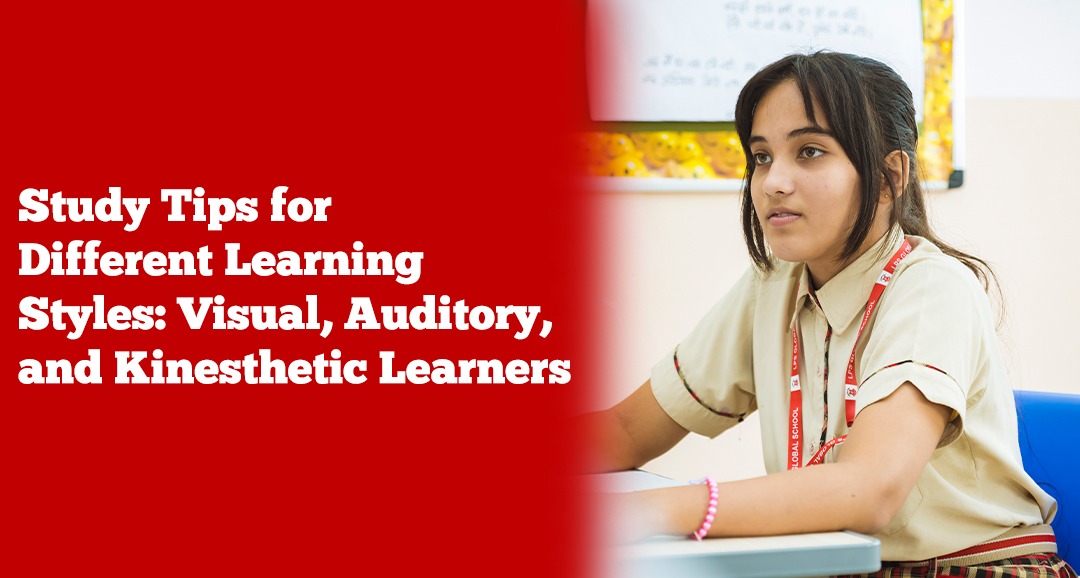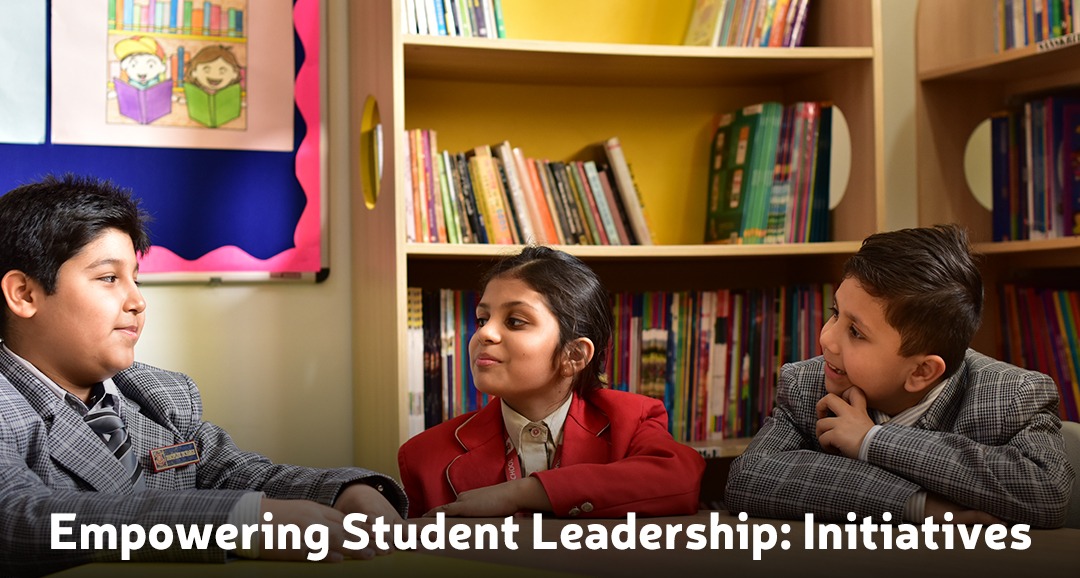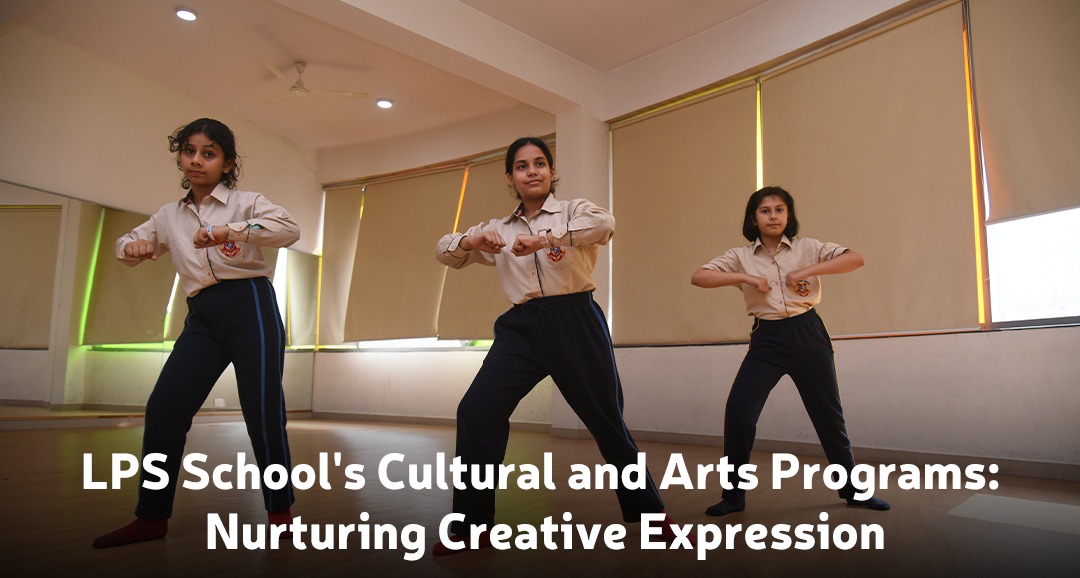
At LPS Global School, we believe that every student is unique and has their own preferred learning style. To help our students excel in their academic pursuits, it is essential to understand the different learning styles and employ effective study strategies tailored to each. In this comprehensive article, we will explore the three primary learning styles – visual, auditory, and kinesthetic – and provide valuable study tips for each.
Visual Learners
Visual learners process and retain information best through images, diagrams, and other visual aids. They have a strong ability to visualize concepts and ideas, which helps them understand complex topics more easily. Here are some study tips for visual learners:
Use visual aids : Incorporate charts, graphs, diagrams, and other visual aids to illustrate key concepts and ideas. By representing information visually, you’ll be better able to understand and remember it.
Colour-code notes : Use different colours to highlight important information and to categorize related ideas. This will help you easily locate key points and visualize connections between topics.
Create mind maps : Mind maps are a powerful tool for visual learners as they help organize and visualize complex information. Start by placing the main topic in the center, then branch out with related ideas and concepts, using colours and images to reinforce connections.
Watch videos : Videos are an excellent resource for visual learners, as they combine auditory and visual elements to provide a comprehensive learning experience. Look for educational videos on platforms like YouTube and Khan Academy to supplement your studies.
Use flashcards : Flashcards are a simple yet effective tool for visual learners, allowing them to memorize key terms and concepts through repetition and visualization. You can create your own flashcards or use digital flashcard apps for convenience.
Auditory Learners
Auditory learners excel at processing and retaining information through listening and verbal communication. They have a strong ability to comprehend spoken language and often learn best through lectures, discussions, and other auditory experiences. Here are some study tips for auditory learners:
Read aloud : When studying, read your notes or textbooks aloud to help reinforce the material. This allows you to process the information both visually and auditorily, improving comprehension and retention.
Record lectures : If permitted, record your lectures and listen to them again later. This will help solidify your understanding of the material and allow you to revisit key points.
Join study groups : Participate in study groups and engage in discussions with your peers. Auditory learners benefit from verbalizing their thoughts and hearing others’ perspectives, which helps solidify understanding and retention.
Use mnemonic devices : Mnemonic devices, such as acronyms and rhymes, can help auditory learners remember important information by linking it to memorable sounds or phrases.
Listen to educational podcasts : Podcasts are an excellent resource for auditory learners, as they provide engaging and informative content in an audio format. Explore educational podcasts related to your subject matter for additional learning opportunities.
Kinaesthetic Learners
Kinaesthetic learners, also known as tactile learners, learn best through hands-on experiences and physical activities. They have a strong ability to understand and remember concepts by engaging their body and sense of touch. Here are some study tips for kinesthetic learners:
Engage in hands-on activities : Whenever possible, participate in hands-on activities and experiments to better understand the material. For example, if you’re studying biology, dissect a specimen or conduct a laboratory experiment to reinforce your learning.
Use physical objects : Utilize physical objects, such as models, puzzles, or manipulatives, to help illustrate key concepts and ideas. This will help kinesthetic learners better understand and remember the material.
Take frequent breaks : Kinesthetic learners often have difficulty sitting still for long periods, so it’s essential to take regular breaks during study sessions. Brief breaks for physical activities, such as stretching or walking, can help maintain focus and engagement.
Incorporate movement : Combine physical movement with your study material to create a stronger connection to the information. For example, try reciting important facts or concepts while jogging, jumping, or performing simple exercises.
Use role-playing : Role-playing can help kinesthetic learners better understand complex concepts by putting them into action. Work with a study group or partner to act out scenarios, debate opposing viewpoints, or simulate real-world situations.
Write and rewrite notes : The physical act of writing can help kinesthetic learners absorb information more effectively. Try rewriting your notes, summarizing key points, or creating your own quizzes to test your knowledge.
At LPS Global School is the Best School in Noida, we strive to provide a supportive learning environment that caters to the diverse needs of our students. By understanding and embracing different learning styles, we can better prepare our students for a bright and successful future. So, take the time to explore these study tips and discover which techniques work best for you. Remember, the key to academic success is not just about working harder – it’s about working smarter.
Blended Learning Strategies for All Learning Styles
As you continue to explore and refine your study techniques, consider incorporating a variety of strategies from each learning style to create a more comprehensive and effective learning experience. Blended learning approaches can help you develop a more well-rounded understanding of the material and engage multiple areas of your brain for improved retention. Here are some blended learning strategies to consider:
Combine visual and auditory aids : Use multimedia resources, such as videos, animations, and interactive presentations, that incorporate both visual and auditory elements. These materials can help reinforce key concepts for learners of all styles.
Practice active reading : While reading textbooks or articles, engage with the material by underlining or highlighting important points, jotting down notes, and verbally summarizing key concepts. This approach engages visual, auditory, and kinesthetic learners simultaneously.
Utilize technology : Digital tools and platforms, such as online quizzes, educational apps, and virtual simulations, can provide a wealth of learning opportunities for students of all learning styles. Experiment with different tools to find the ones that best suit your needs and preferences.
Apply real-world examples : Connecting abstract concepts to real-world situations can help learners of all styles better understand and remember the material. Look for ways to relate your studies to everyday life, whether it’s through discussions, written examples, or hands-on activities.
Reflect on your learning : Regardless of your learning style, it’s essential to regularly evaluate your progress and identify areas for improvement. Take the time to reflect on your study techniques, seek feedback from peers and educators, and adjust your strategies as needed.
In conclusion, it’s essential to recognize that everyone has their unique learning preferences, and there is no one-size-fits-all approach to studying. By understanding and embracing the different learning styles, and experimenting with a blend of study strategies, you can create a personalized and effective learning experience that leads to academic success.
At LPS Global School, we are committed to providing an inclusive and adaptive learning environment that caters to the individual needs of our diverse student body. By fostering a culture of curiosity, creativity, and collaboration, we aim to empower our students to become confident and lifelong learners, ready to face the challenges and opportunities that lie ahead.
Cultivating a Growth Mindset for Continued Success
In addition to employing study strategies tailored to your learning style, cultivating a growth mindset can be crucial to your academic success and personal development. A growth mindset is the belief that intelligence and abilities can be developed and improved through effort, persistence, and learning from challenges. Embracing this mindset can help you persevere through difficulties and view setbacks as opportunities for growth, rather than as limitations.
Here are some tips for fostering a growth mindset in your learning journey:
Embrace challenges: View challenges as opportunities for growth and learning, rather than as threats to your self-esteem or intelligence. When faced with a difficult task, remind yourself that you have the capacity to learn and improve.
Value the process: Focus on the learning process rather than just the outcome. Celebrate your progress and the effort you put into your studies, rather than just the grades or accolades you receive.
Learn from mistakes : Recognize that mistakes are a natural part of the learning process, and use them as opportunities to gain valuable insights and improve your understanding. Reflect on your mistakes, identify areas for growth, and apply the lessons learned in future endeavors.
Seek feedback : Actively seek constructive feedback from your teachers, peers, and mentors to help you identify areas for improvement and growth. Be open to criticism, and view it as an opportunity to learn, rather than as a reflection of your worth or ability.
Cultivate a love for learning : Embrace the joy of learning and strive to develop a genuine passion for the subjects you study. Engaging with the material out of genuine interest, rather than just for the sake of grades, can help you approach your studies with a more open and curious mindset.
Incorporating a growth mindset into your learning approach, along with study strategies tailored to your unique learning style, can set you on a path to continued success and personal development. By recognizing that intelligence and abilities are not fixed, but can be cultivated and improved, you can unlock your full potential and become a more resilient and adaptive learner.
At LPS Global School is the Best School in Noida, our mission is to empower our students to become not just successful in their academic pursuits, but also to develop into well-rounded individuals equipped with the skills and mindset to thrive in an ever-changing world. By fostering an environment that encourages a growth mindset and embraces the diverse learning styles of our students, we aim to create a dynamic and inclusive educational experience that prepares our students for a lifetime of learning and success.
Developing Essential Study Skills for Long-Term Success
Beyond tailoring your study strategies to your unique learning style and fostering a growth mindset, it is also important to develop essential study skills that can contribute to long-term academic success. These skills, which are applicable to students of all learning styles, can help improve focus, organization, and time management, ultimately leading to more effective and efficient learning.
Here are some essential study skills to cultivate for long-term success:
Time management : Learning to manage your time effectively is crucial for balancing academic, extracurricular, and personal responsibilities. Create a study schedule, break tasks into smaller, manageable chunks, and set realistic goals to help you stay on track and avoid procrastination.
Organization : Keeping your study materials and workspace organized can help you focus and more easily locate important information. Develop a system for organizing your notes, textbooks, and digital files that works for you, and maintain a clutter-free workspace to minimize distractions.
Active listening : Enhance your listening skills by focusing on the speaker, taking notes, and asking questions during lectures and discussions. Active listening can help improve your comprehension and retention of the material, as well as your ability to think critically and engage in meaningful conversations.
Critical thinking : Developing critical thinking skills allows you to analyze, evaluate, and synthesize information more effectively. Practice questioning assumptions, considering alternative perspectives, and seeking evidence to support your conclusions to become a more insightful and adaptable learner.
Test-taking strategies : Mastering test-taking strategies can help you perform better on exams and assessments. Familiarize yourself with different types of test questions, practice time management during exams, and develop a systematic approach to tackling complex problems.
By developing these essential study skills in conjunction with tailored strategies for your learning style and a growth mindset, you can set the foundation for long-term academic success and personal growth.
At LPS Global School is the Best School in Noida, we are dedicated to supporting our students in developing the skills and mindset necessary to excel academically and beyond. Our educators strive to create a nurturing and inclusive learning environment that encourages students to explore their interests, challenge themselves, and take ownership of their learning journey. By empowering our students to become confident, adaptable, and lifelong learners, we aim to prepare them for a future filled with success, growth, and fulfilment.
Conclusion
Each student’s learning style is unique, and understanding your preferred style can significantly impact your academic success. By employing study strategies tailored to visual, auditory, or kinaesthetic learning styles, you can enhance your understanding, retention, and application of important concepts and ideas.




